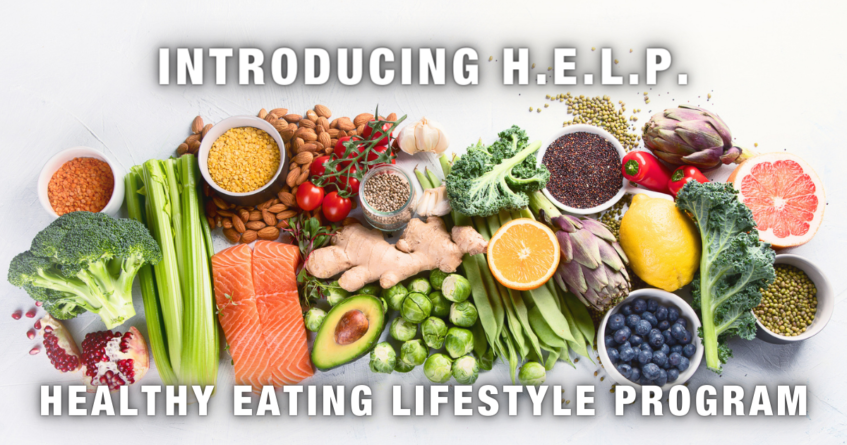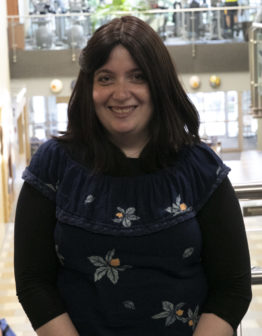
by Polina Vorobeychik, Registered Dietitian
This is the time of the year when many of us resolve to treat ourselves better and set goals for the coming year. Perhaps you want to lose weight or exercise more. These are all incredibly noble and important goals. Nevertheless, ideas don’t take us far unless we act on them – so, what’s next? The J has developed a program to help guide your nutrition habits in a positive direction. 
Starting Sunday, January 29, I am kicking off my virtual group class that will explore our diet mentality. The program is called H.E.L.P. (Healthy Eating Lifestyle Program). We will start identifying our true hunger instead of an emotional one and understanding mindless eating. Additionally, I will take you on a tour of a grocery store and it will open your eyes to the intentional design of stores to encourage impulse buys. Finally, we will set goals together and work through them as a community. We will create a community of individuals who are working on improving their relationship with food and improving their health and energy.
Join me for a FREE pop-up class on January 29 at 11am. Anyone is free to join the pop-up and check out this virtual class! Interested? Contact Bernie Suddarth, 314-442-3452.
Here’s how the H.E.L.P. program can help you meet your goals. Many of us get inspired to follow a new eating plan that promises quick, easy, and fast weight loss. Fad diets sound so appealing and promising. We believe that this time it will be different, that we will overpower our temptations and succeed. Starting a new diet creates a sense of euphoria and excitement for the possibility of changes ahead. In the beginning, people are very committed to the plan. They are very vigilant about being careful not to overstep their diet’s parameters. They start perceiving some positive changes and that gets them more excited. However, sooner or later our bodies start to resist and we plateau. Then the desire to eat the forbidden foods starts nagging until it becomes a scream in our heads and we succumb. The hunger that follows is even harder to quench. And then the diet fails.
Unfortunately, 80% of those who start a diet are not successful. 90% of people who are successful in losing weight will regain their weight back.
Why don’t they work?
Fad diets are designed to maximize weight loss in a short period of time. They are not designed for sustained weight loss and maintenance. They usually have a missing food or food group, such as, avoiding carbs, gluten, or all sugars. They are, at best, loosely based on scientific evidence. Alarmingly, they can be detrimental to people who are suffering from chronic illnesses. Finally, they promote short-term change but not long-term change. They do not address the relationship we have with food and in some cases might make it worse. It is like putting a band-aid on a wound that needs stitching: it is a sufficient short-term solution but not a long-term solution.

What can we do instead?
We need to work on understanding ourselves, our habits, and our thoughts. We need to unlearn the bad habits we have around food. We have to make small, sustainable changes that in the long term will help us improve our health and energy. It is not a quick solution, but it is a permanent one.
Happy 2023, and I wish you all to achieve your goals permanently!
